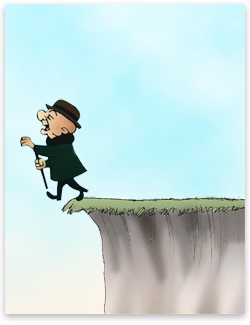
“We may be seeing the beginning of the end of the recessionâ€, says Obama
It has become apparent that the way for economists to become important, respected, even get Nobel prizes, is to tell politicians and bureaucrats what they want to hear, which is usually that there is sound economic reasons to do whatever pleases lobbyists, special interest groups, and strategically important voting blocks.
Here is Bernanke on the housing boom back before it burst – he is telling us that the there is no bubble, that the government inflating prices will not cause crash and recession – were he to tell us something different people might think that the government pressuring banks to throw trillions of dollars in the general direction of people of the politically correct race but economically incorrect credit rating might lead to serious problems.
That does not of course mean the recession is going to get worse. What it does mean, however, is that all the very clever economic experts around Obama will tell him that things are going to be fine, regardless of whether they are going to be fine or not.
Because some of the people around Obama are crazies, notably his science Czar, craziness automatically becomes mainstream, and the good and the great start figuring out clever rationalizations why those programs are not crazy at all.
Well Obama has stuck his neck out a little, and made his prediction, so it is only fair that I stick my neck out and make my prediction: My prediction is for high unemployment, high inflation, or both, leading to ballot box stuffing and heavy intimidation of white and aged voters in the vicinity of the voting booth in 2010 and 2012
It has long bothered me that this corruption is even possible in economics. We do not see all that much corruption of other sciences by politics, though we do see some (global warming, race differences). Of course the pseudo sciences are corrupted from bottom to top by politics, but I want to think economics is not a pseudo science.
For the reasons blogged by Moldbug, there is always some corruption.
Science as originally structured by the invisible college, is an institution designed to function successfully despite fairly high levels of corruption, persecution, and barefaced lies. It is not the presence of corruption that makes a science into a pseudo science, it is whether these safeguards and precautions are discarded. When the Royal Society reinterpreted away its motto “nullius in verba”, a motto inherited from the invisible college, giving it a new meaning that went down more smoothly on government funding, then it became an institution of pseudo science.
I think, though, that I must accept that macroeconomics is a pseudoscience, though I have not yet accepted that microeconomics is. Keynesianism, being macro, is pseudo. This seems consistent with the observable facts. By making this distinction I can account for the obvious truths that we gain from micro and the obvious pandering to the powerful that we find among so many elite economists.
The state of macro economics is pretty much as Henry Hazlitt describes it in “Economics in one lesson” – “Yet when we enter the field of public economics, these elementary truths are ignored”
It is science in that the politically inconvenient truth is well known among economists, it is pseudo science in that this truth is played down, rationalized away, and weaseled around by those economists who hope to get places – science in that they know the truth, pseudo science in that they find it convenient not to know it.
Arnold Kling has just explained that “In fact, the entire mainstream economics profession is built around [progressivism/technocratism]. When you write a paper, if you don’t include a section on “policy implications” (i.e, how a benevolent technocrat would use the findings in your paper), the paper is considered incomplete.”
Hoping links will work: Econlog article.